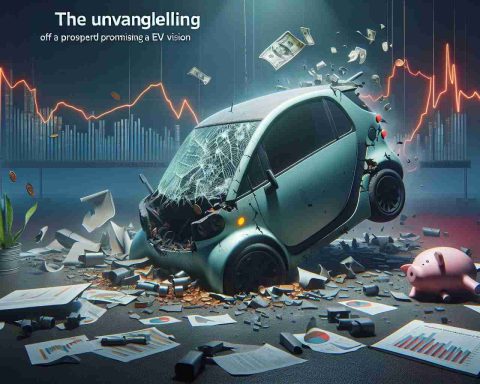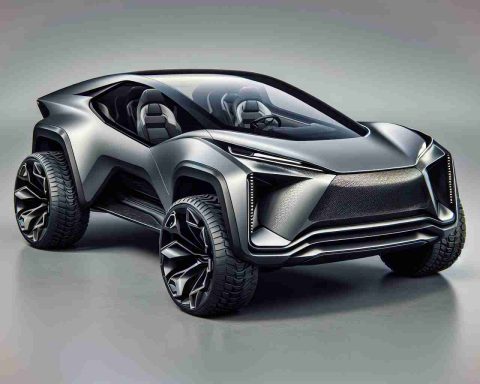DB Schenker Embraces Electric Innovation
In a groundbreaking move, DB Schenker has committed to enhancing its fleet with the introduction of 40 Volvo FM Electric trucks across Germany, with deployment set for December 2024. These state-of-the-art 20-ton vehicles are engineered for diverse delivery demands in urban and regional settings, featuring impressive trailer capabilities and an operational range of up to 300 kilometres per charge.
The decision to integrate electric trucks underlines DB Schenker’s goal to curtail CO₂ emissions within the logistics sector while fulfilling the rising need for eco-friendly transportation. The quiet operation of these vehicles further solidifies their suitability for urban maneuvers, where noise reduction is paramount.
This initiative marks a pioneering moment for DB Schenker, as it represents the first use of electric trucks with trailer functionalities for last-mile deliveries in Germany. By phasing out diesel-powered units from similar roles, the company is setting the stage for expanded electric vehicle applications throughout its services.
The Volvo FM Electric stands out with up to 490 kW of power and offers versatile charging options—needing about 9.5 hours for an AC charge and only 2.5 hours for DC charging. This advancement ensures efficiency and minimizes downtime. Drivers are already enjoying the spacious cabins, safety features, and ergonomic designs of these vehicles, contributing to optimized comfort and security on the job.
DB Schenker’s investment underpins its relentless commitment to reducing emissions across all transport domains, aligning with its ambition for sustainable supply chains tailored to environmentally conscious customers.
Driving the Future: DB Schenker’s Electric Fleet Revolution
Introduction
DB Schenker is making significant strides in the logistics sector by embracing electric vehicle technology. The company’s recent commitment to integrating 40 Volvo FM Electric trucks into its fleet not only positions it as a leader in sustainability but also meets the increasing demand for eco-friendly transportation solutions. This article explores the features, benefits, and implications of this move, highlighting its impact on the environment and logistics industry.
Specifications and Features of the Volvo FM Electric
The Volvo FM Electric trucks are engineered for efficiency and reliability. Here are some key specifications:
– Payload Capacity: 20 tons, suitable for various delivery requirements.
– Operational Range: Capable of traveling up to 300 kilometers on a single charge, catering well to urban and regional deliveries.
– Power Output: Equipped with up to 490 kW of power, ensuring robust performance.
– Charging Options:
– AC Charging: Approximately 9.5 hours for a full charge.
– DC Fast Charging: Requires only 2.5 hours to reach a full charge, significantly reducing downtime.
These specifications make the Volvo FM Electric an ideal choice for last-mile delivery in urban contexts, where performance and efficiency are crucial.
Pros and Cons of DB Schenker’s Electric Initiative
# Pros:
– Environmental Impact: A significant reduction in CO₂ emissions, supporting global efforts to combat climate change.
– Operational Efficiency: Enhanced charging technology and range lead to increased productivity and reduced operational costs.
– Noise Reduction: The quiet operation of electric vehicles makes them suitable for urban deliveries, particularly during sensitive hours.
# Cons:
– Initial Investment: The upfront costs of electric trucks and charging infrastructure can be high, although they may be offset by long-term savings.
– Range Limitations: While the operational range is adequate for many uses, longer haul routes may still require conventional vehicles until battery technology improves.
Use Cases and Market Trends
DB Schenker’s initiative aligns with a growing trend in the logistics industry towards electrification. As regulations on emissions become more stringent, companies are increasingly adopting electric vehicles. Notable applications for the Volvo FM Electric include:
– Last-Mile Delivery: Ideal for urban areas where noise and emissions are of major concern.
– Regional Transport: Effective for delivering goods within a 300-kilometer radius, making them suitable for regional distribution centers.
The logistics market is witnessing a surge in demand for sustainable solutions, driven by consumers’ increasing preference for environmentally friendly practices. DB Schenker’s move is not just a response to regulatory pressures but a proactive step towards capturing a share of this expanding market.
Innovations and Future Predictions
DB Schenker’s investment in electric trucks positions it as an innovator in the logistics sector. This commitment is expected to lead to further developments in autonomous driving and improved battery technologies, which will enhance the operational capabilities of electric vehicles. Predictions indicate a rising trend in electric vehicle adoption within logistics, paving the way for more sustainable supply chain solutions.
Conclusion
In conclusion, DB Schenker’s deployment of 40 Volvo FM Electric trucks represents a significant leap towards sustainable logistics. By prioritizing electric innovations, the company not only minimizes its environmental footprint but also sets a benchmark for the industry. As the logistics market continues to evolve, initiatives like this are crucial in ensuring a greener, more efficient future.
For more information on sustainable logistics and innovations in the supply chain, visit DB Schenker.













